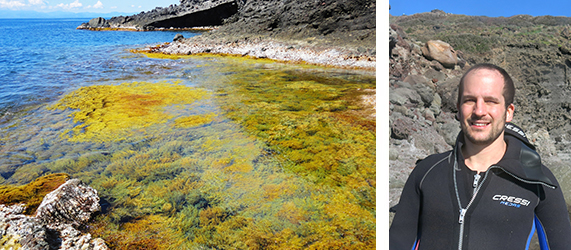Luca will illustrate experimental tests of critical thresholds and spatial early warning signals in rocky intertidal systems. First, he will present studies evaluating the performance of spatial early warning signals (EWS) in an intertidal macroalgal system, where canopy removals pushed the system toward a tipping point (approximately at 75% of canopy loss), marking the transition from a canopy- to a turf-dominated state. Results provide evidence that generic EWS indicators may announce regime shifts in natural communities, suggesting promising metrics of approaching tipping points in a broad class of spatially extended ecosystems. Thereafter, an experiment that investigated how combinations of extreme events (of temperature and sediment deposition) that differed in their degree of temporal clustering generated alternative states in rocky intertidal microphytobenthos (biofilm). Results indicate that degree of temporal clustering may be a critical predictor of regime shifts and that the inclusion of historical effects may largely improve our understanding of ecosystem dynamics under climate change. Identifying factors promoting regime shifts and testing EWS is vital to properly design monitoring programs and to consequently enhance ecosystem conservation and management.
Luca Rindi, postdoc in the Department of Biology at University of Pisa, is working on remote sensing and experiments of marine coastal systems to understand their stability in the face of climate change (with Prof. Lisandro Benedetti-Cecchi). Luca completed his PhD at University of Pisa in 2016, where he focused on understanding the effects of regime shifts and loss of resilience in rocky shore ecosystems, and on identifying suitable and effective early warning indicators under naturally fluctuating conditions.
